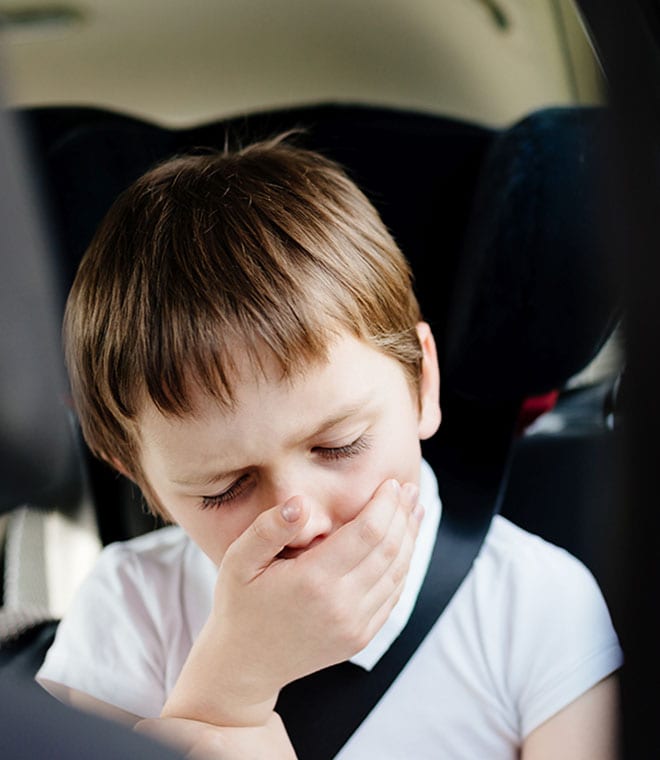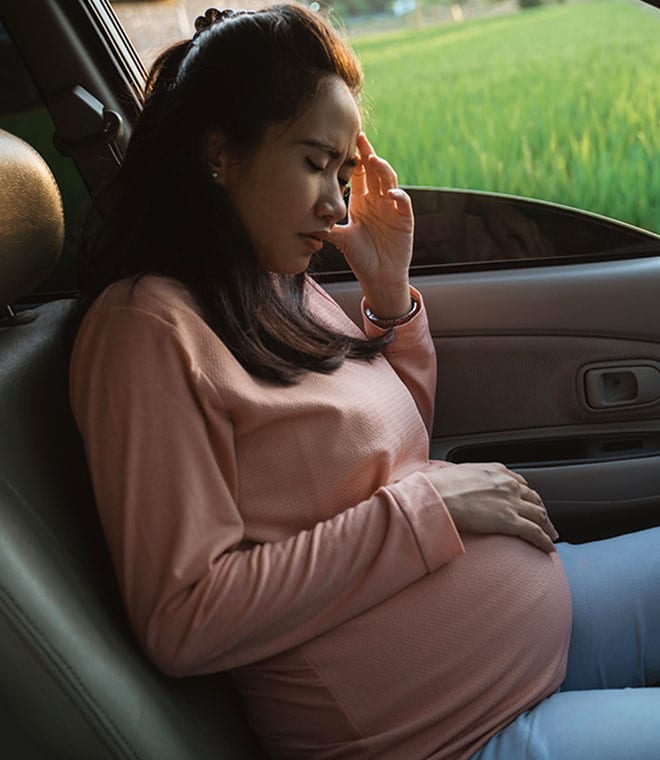Health
Air sickness: Causes, symptoms and treatments
By Sadie Crouch, RN, BSN Aug 22, 2024 • 5 min
Many people are familiar with motion sickness, whether it's induced from riding on a boat, a long car drive or spinning on a ride at an amusement park. People can also experience motion sickness while riding in an airplane, which is often referred to as air sickness. This is a common ailment experienced by most people at some point. While air sickness can cause a variety of troubling symptoms, there are medications and other motion sickness remedies that may help.
What causes air sickness?
Air sickness occurs when there is a conflict between your senses and the parts of your body that assist in balance, including the inner ear, eyes and sensory nerves. In the case of flying on a plane, your inner ear and sensory nerves can feel the movement of the plane while your eyes see the stillness inside the cabin and may not register the movement. This conflict between senses is the cause of air sickness.
What are the symptoms of air sickness?
Air sickness may present itself in a number of ways, and it may not be the same for everyone. Common motion sickness symptoms include dizziness, nausea and vomiting, but some people may experience other symptoms such as:
- Dry heaving
- Pale Skin
- Sweating
- Cold sweats
- Excessive salivation
- Apathy
- Yawning
- Hyperventilation
- Increased sensitivity to odors
- Loss of appetite
- Headache
- Drowsiness
- Warm sensation
- General discomfort
Can air sickness be prevented?
While you may not be able to prevent air sickness entirely, there are steps you can take to help reduce the risk of air sickness. These include:
- Choose your seat carefully—experts advise asking for a seat over the front edge of a wing
- Direct the air-vent flow toward your face
- Try keeping your head as still as possible
- Avoid strong odors, eat small amounts of food at a time, and avoid alcohol and caffeinated beverages
It's important to keep in mind that what works for one person may not work for everyone. You many need to try different preventive methods to find what works for you. If you’re still experiencing air sickness despite your best efforts, treatments are available.
How is air sickness treated?
There are several different medications available to prevent or treat air sickness. Two common classes of medications used for motion sickness include certain types of antihistamines and anticholinergic agents. Some of these medications are over-the-counter (OTC) and others need a prescription.
First-generation antihistamines are used to prevent or treat motion sickness symptoms, but these medications can cause drowsiness.
- OTC motion sickness options include diphenhydramine (Benadryl), dimenhydrinate (Dramamine) and meclizine (Bonine)
- Prescription motion sickness options include prescription meclizine (Antivert) and promethazine (Phenergan)
Anticholinergic transdermal patches placed behind the ear can be used to prevent nausea and vomiting caused by motion sickness.
- Prescription-only scopolamine transdermal patch (Transderm-Scop).
Your healthcare provider will be able to recommend the best medication for you. If you take any other medications or have underlying medical issues, it’s especially important to consult your healthcare provider before taking medication for air sickness. If your child has motion sickness, ask your healthcare provider for recommendations. Certain medications may not be safe for children.
Alternative air sickness remedies
Alternative or complementary therapies, such as acupuncture, acupressure (including wrist bands for motion sickness) and dietary supplements are other options available to address air sickness. Some people also take ginger for air sickness. Check with your healthcare provider before taking any supplements.
Air sickness is a common ailment that can cause a number of unpleasant symptoms. However, there are many medicinal and other alternative motion sickness remedies available. If you’re struggling with air sickness, see your healthcare provider for an evaluation and treatment recommendations.
Updated by Julie McDaniel, MSN, RN, CRNI, August 2024.
Sources:
- https://www.uofmhealth.org/health-library/uf4437
- https://wwwnc.cdc.gov/travel/page/motion-sickness
- https://wwwnc.cdc.gov/travel/yellowbook/2020/travel-by-air-land-sea/motion-sickness
- https://www.mayoclinic.org/first-aid/first-aid-motion-sickness/basics/art-20056697
- https://www.merckmanuals.com/home/injuries-and-poisoning/motion-sickness/motion-sickness
- https://familydoctor.org/condition/motion-sickness/
- https://www.mountsinai.org/health-library/condition/motion-sickness
- https://www.nccih.nih.gov/health/ginger
- https://www.ncbi.nlm.nih.gov/books/NBK539706/#



